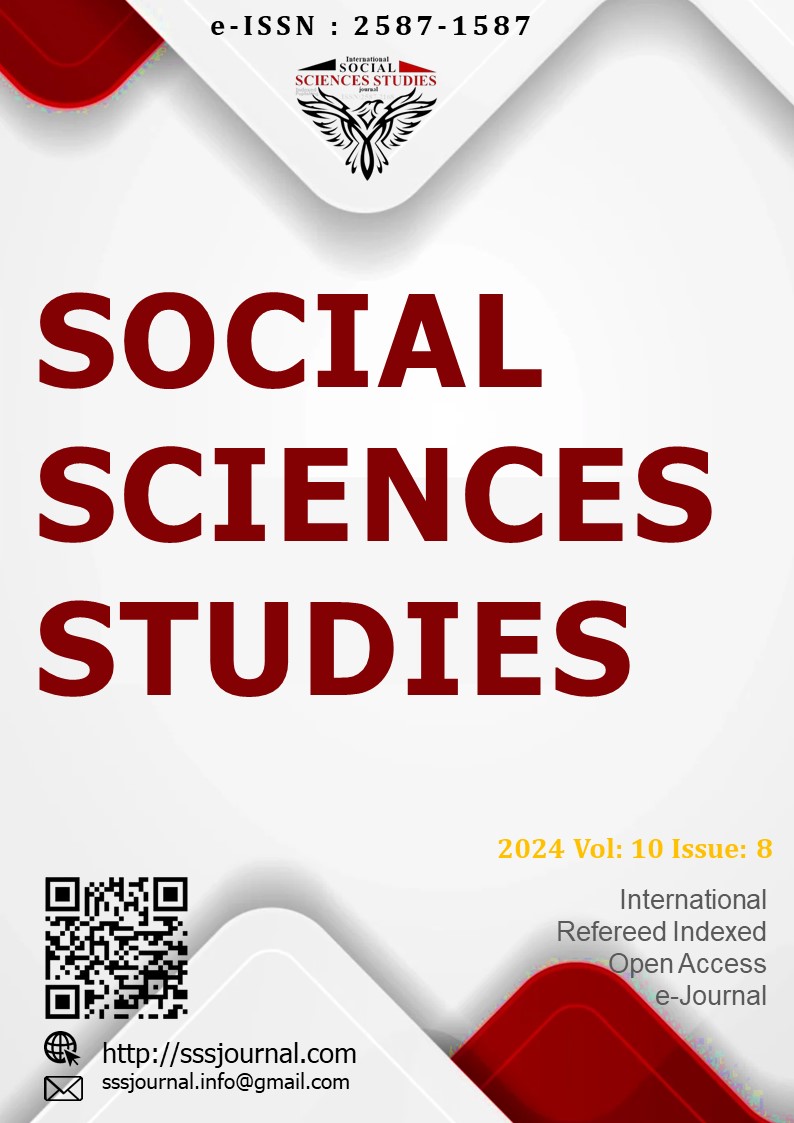Nesirlerimizle Finansal Okuryazarlık Öğreniminin Lise Öğrencilerinin Finansal Tutumlar ve Para Yönetimi Üzerine Etkisinin İncelenmesi
Author :
Abstract
Gençlerimizin finansal konularda planlama yapmaya, israftan kaçınıp tutumlu olmaya yönlendirilmesinde, yatırım yapma meraklarının doğru kanallara sevk edilmesinde kültürel değerlerimizin önemi yadsınamaz bir gerçektir. Bu değerlerin öğrencilerin hayatlarında ne düzeyde etkili olabildiği ve olabileceği araştırmanın inceleme konusu olmuştur. Araştırmada sözlü kültür unsurlarıyla oluşturulan uygulamalarla öğrencilerin finansal tutumlarında olumlu değişimlerin ortaya çıkması amaçlanmıştır. Çalışmada sözlü kültür unsurlarıyla verilen eğitimin gençlere finansal açıdan büyük katkı sağlayacağı, onların geçmiş ile bağlarını kuvvetlendireceği, nihayetinde toplumsal refahın da yükselmesine etki edeceği düşünülmüştür. Araştırmanın örneklemi 2023-2024 eğitim öğretim yılında Ankara ilinde bir Anadolu lisesinin 9 ve 10. sınıflarında öğrenim gören 167 öğrenciden oluşmuştur. 167 öğrenci içerisinden aldıkları puana göre homojen dağılım gösteren 30 katılımcı öğrenci seçilmiştir. Nicel yönden “Para Yönetim Özyeterlik Ölçeği ve Para Davranış Algısı Ölçeği” “Kişisel Bilgi Formu” ve “Finansal Tutum Ölçeği” uygulanmıştır. 6 hafta belirli zaman aralıkları içerisinde yapılan araştırma öncesinde nitel yönden finansal okuryazarlık düzeylerini belirlemede yarı yapılandırılmış görüşme formları kullanılarak finansal tutumlar nitel olarak belirlenmiştir. Ön test ve son testlerle öğrencilerin finansal okuryazarlık düzeyi ve tutumları incelenip istatistiki programlarla (t-Testi, ANOVA) analiz edilmiştir. Araştırmanın sonucunda öğrencilerin finansal tutumlarında nicel yönden anlamlı değişimler görülürken nitel yönden de değişimlerin benzerlik gösterdiği görülmüştür.
Keywords
Abstract
It is an undeniable fact that our cultural values are important in directing our young people to plan financial matters, avoid waste and be frugal, and direct their interest in investing to the right channels. The extent to which these values can be effective in students' lives has been the subject of research. The aim of the research was to bring about positive changes in students' financial attitudes through practices created with oral culture elements. In the study, it was thought that the education provided with oral culture elements would make a great financial contribution to young people, strengthen their ties with the past, and ultimately increase social welfare. The sample of the research consisted of 167 students studying in the 9th and 10th grades of an Anatolian high school in Ankara in the 2023-2024 academic year. Among 167 students, 30 participating students with a homogeneous distribution were selected according to their scores. In quantitative terms, "Money Management Self-Efficacy Scale and Money Behavior Perception Scale", "Personal Information Form" and "Financial Attitude Scale" were applied. Before the research, which was conducted within certain time intervals of 6 weeks, financial attitudes were determined qualitatively by using semi-structured interview forms to determine financial literacy levels. Students' financial literacy levels and attitudes were examined with pre-test and post-tests and analyzed with statistical programs (t-Test, ANOVA).As a result of the research, it was seen that while there were significant changes in students' financial attitudes in quantitative terms, the changes were similar in qualitative terms.





